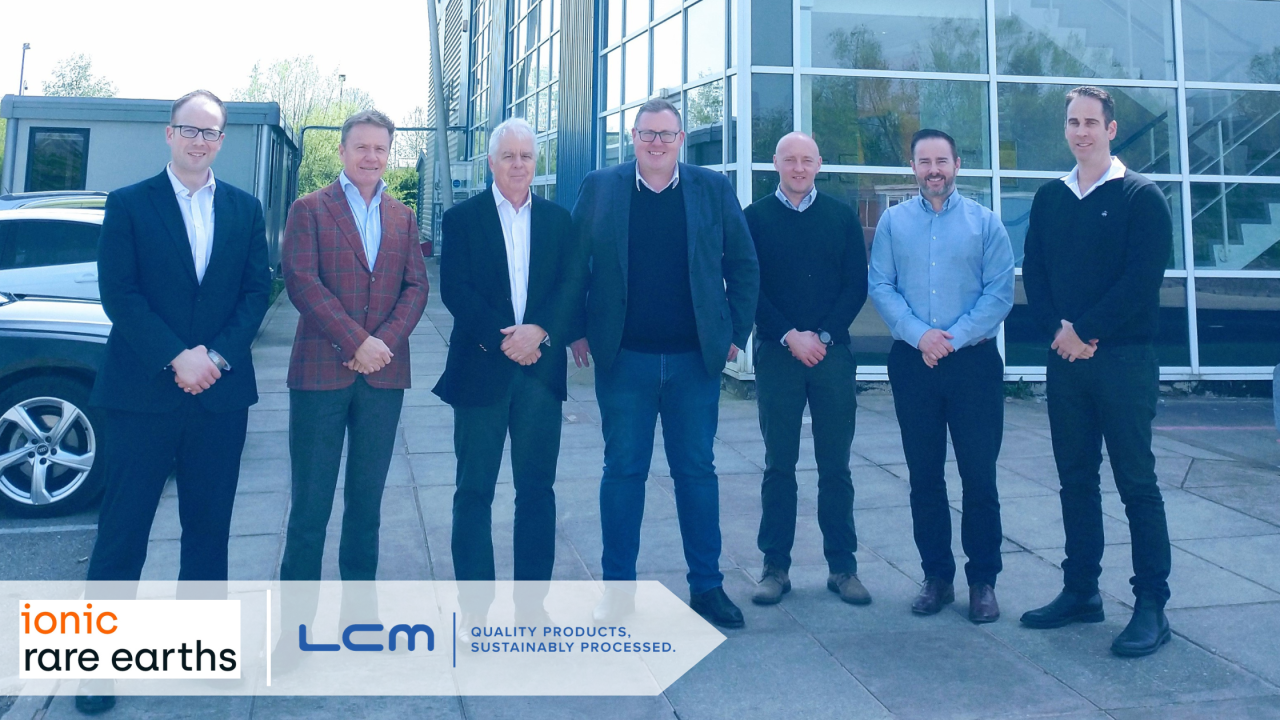Less Common Metals Ltd (LCM) is thrilled to announce a further partnership with Ionic Rare Earths Limited (IonicRE).
The two industry leaders have signed a non-binding Memorandum of Understanding (MOU) to collaboratively forge a recycling route.
LCM, situated in the UK, is a world leader in the manufacture and supply of complex alloy systems and metals, offering an innovative and highly flexible approach to a wide range of material requirements. As the sole commercial producer of rare earth metals and alloys outside China and its Southeast Asian affiliates, LCM is uniquely positioned to process all products that IonicRE plans to produce through recycling.
The MOU outlines the shared ambition of LCM and IonicRE to finalise agreements for supplying high-purity rare earth oxides (REOs). The collaboration extends to working with the UK government and international bodies to secure mutual incentives, emphasising the strategic importance of this alliance.
In a notable development from September 2023, IonicRE’s wholly-owned UK subsidiary, Ionic Technologies International Limited, secured a partnership with LCM and Ford Technologies. This collaboration aims to create a UK-based supply chain for recycled magnet rare earths, backed by UK government grant funding.
Ionic Technologies has pioneered a cutting-edge technology for separating and refining rare earth elements from spent magnets and waste materials. This patented technology achieves an impressive 99.9% purity in separating individual magnet rare earth oxides, specifically Nd, Pr, Dy, and Tb, setting a new industry benchmark.
In July 2024, the first batches of separated NdPr oxide (NdPr)2O3, dysprosium oxide (Dy2O3), and terbium oxide (Tb4O7) will be supplied to LCM. LCM will convert these oxides into metals and alloys, which will then be used to manufacture magnets through a European subcontractor.
Less Common Metals Chairman, Mr Grant Smith said: “LCM is pleased to expand our relationship with Ionic Rare Earths and their recycling technology with a view to further developing the current UK supply chain and with an eye to future developments in north America.”
“LCM has found IonicRE’s recycling technology very capable and with sufficient flexibility to assist LCM in the recycling of a wide range of materials and products including materials sourced from outside of the rare earth magnet field and we have been delighted with our progress to date.”
IonicRE’s capability in processing a wide range of materials is important to LCM, for during LCM’s 32-year history we have developed a wide-ranging customer base not only in the rare earth magnet industry but also in the super alloy and hydrogen storage industries, so it is important for LCM to be able to offer a recycling capability to our whole customer base. We look forward to working with IonicRE as we develop all our markets and expand our mutual capabilities.”
Ionic Rare Earths’ Executive Chairman, Mr Brett Lynch commented: “We are delighted to progress the relationship further with Less Common Metals and work together on a much more expanded ambition to build resilience in new rare earth supply chains.
“LCM’s decades-long experience and its innovative approach make it a valuable partner and we look forward to progressing this partnership further as we build a Western rare earths supply chain from recycled magnets.
“This relationship provides a key unlock from our high purity magnet REOs now to the metals and alloys that magnet manufacturing requires, and collectively we now have a much stronger position working together with a common goal.
“IonicRE and our partners are focused on taking the lead in developing a secure and traceable critical minerals supply chain in the UK, and further abroad, powering our decarbonised and electrified future.”
Both IonicRE and LCM recognise the importance of promoting environmentally responsible, safe, and sustainable practices in all aspects of their projects and operations and have committed to the highest industry standards in safety, environmental protection, and sustainability, including IRMA or equivalent standards.

